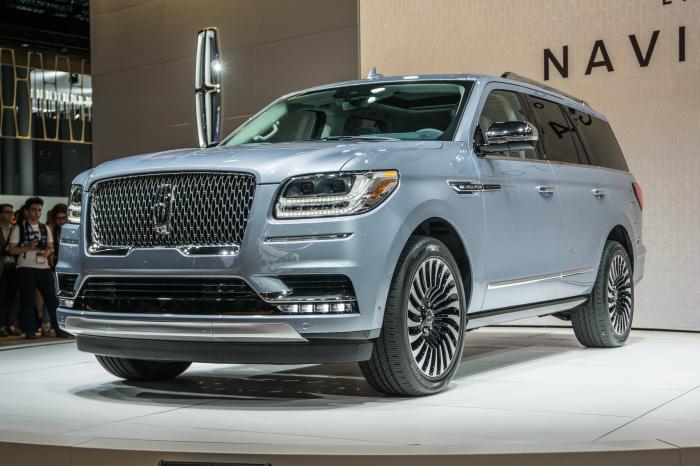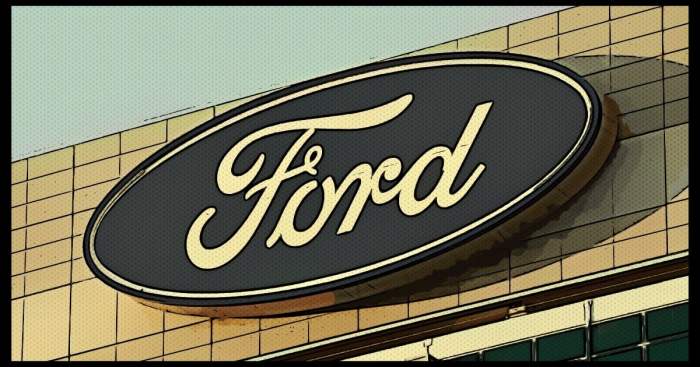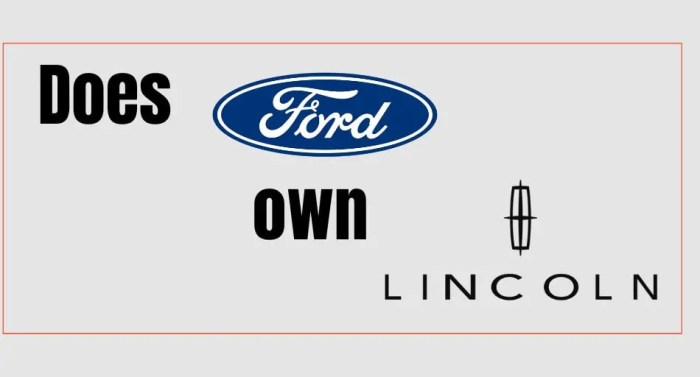Does Ford own Lincoln? The answer to this question unveils a captivating tale of corporate acquisitions, brand strategies, and the intricate dance between two automotive giants. Join us as we delve into the history, differentiation, and future of Ford and Lincoln, unraveling the complex tapestry that binds these two iconic marques.
From their humble beginnings to their present-day standing, Ford and Lincoln have navigated a dynamic landscape of ownership and brand positioning. Ford’s acquisition of Lincoln in 1922 marked a pivotal moment, setting the stage for a century-long relationship that has shaped the automotive industry.
Ownership History: Does Ford Own Lincoln

Ford Motor Company has a long and storied history with Lincoln, a luxury automotive brand that has been a part of the Ford family since 1922. The acquisition of Lincoln by Ford was a strategic move that allowed Ford to expand its reach into the luxury car market and compete with other established luxury brands such as Cadillac and Packard.
Acquisition
The acquisition of Lincoln by Ford was driven by several factors. First, Ford recognized the growing demand for luxury cars in the United States. Second, Ford saw the acquisition of Lincoln as a way to gain access to Lincoln’s engineering and design expertise.
Third, Ford believed that Lincoln could help to improve the overall image of the Ford brand.
Brand Differentiation
Ford and Lincoln are two distinct brands with different target audiences and brand positioning. Ford is known for its affordable, reliable vehicles, while Lincoln is known for its luxury vehicles. Ford has maintained distinct brand identities for both companies by emphasizing different values and attributes.
Target Audience
Ford targets a wide range of consumers, from budget-conscious buyers to those looking for more performance-oriented vehicles. Lincoln, on the other hand, targets a more affluent clientele who are looking for luxury and comfort.
Brand Values
Ford’s brand values include affordability, reliability, and durability. Lincoln’s brand values include luxury, comfort, and prestige.
Product Lineups
Ford’s product lineup includes a wide range of vehicles, from compact cars to full-size trucks. Lincoln’s product lineup is more focused on luxury vehicles, including sedans, SUVs, and crossovers.
Marketing and Advertising
Ford’s marketing and advertising campaigns typically focus on the value and affordability of its vehicles. Lincoln’s marketing and advertising campaigns typically focus on the luxury and prestige of its vehicles.
Product Line Comparison

Ford and Lincoln, both under the Ford Motor Company umbrella, offer distinct product lines that cater to different market segments. While sharing some similarities, their vehicle offerings exhibit notable differences in terms of price, features, and target audience.
Target Markets
Ford primarily targets mainstream consumers seeking affordable and reliable transportation. Its vehicles are known for their value-oriented pricing and practical features, appealing to families, young professionals, and budget-conscious buyers.
Lincoln, on the other hand, positions itself as a luxury brand, catering to discerning customers who prioritize comfort, opulence, and exclusivity. Its vehicles are designed to provide a premium driving experience, with high-end materials, advanced technologies, and a focus on personalized service.
Product Line Similarities
- Both Ford and Lincoln offer a range of vehicles, including sedans, SUVs, and trucks.
- They share some common platforms and powertrains, ensuring reliability and performance.
- Both brands prioritize safety and incorporate advanced driver assistance systems into their vehicles.
Product Line Differences, Does ford own lincoln
- Price:Lincoln vehicles are significantly more expensive than their Ford counterparts, reflecting the luxury and premium features they offer.
- Features:Lincoln vehicles typically come equipped with a wider array of standard features, such as leather upholstery, heated and cooled seats, and advanced infotainment systems.
- Design:Lincoln vehicles feature more elegant and sophisticated exterior and interior designs, emphasizing exclusivity and style.
Marketing and Advertising
Ford and Lincoln employ distinct marketing and advertising strategies that align with their respective brand positionings.
Ford
Ford’s marketing strategy focuses on mass appeal, emphasizing affordability, reliability, and value for money. It targets a broad customer base, including families, young professionals, and commercial buyers.
- Mass advertising campaigns on television, radio, and print media.
- Emphasis on customer testimonials and real-world experiences.
- Strong focus on digital marketing and social media engagement.
Lincoln
Lincoln’s marketing strategy aims to convey luxury, exclusivity, and craftsmanship. It targets affluent consumers seeking a premium driving experience.
- Exclusive advertising in high-end publications and lifestyle magazines.
- Emphasis on brand heritage, craftsmanship, and attention to detail.
- Experiential marketing events and test drives to showcase the brand’s offerings.
Financial Performance
Lincoln’s ownership by Ford has had a significant impact on Ford’s financial performance. Lincoln has consistently contributed to Ford’s overall profitability, helping to offset losses in other parts of the company’s business.
In recent years, Lincoln has seen strong sales growth, particularly in China. This growth has helped to boost Ford’s overall revenue and profitability. In 2021, Lincoln generated over $10 billion in revenue, accounting for approximately 5% of Ford’s total revenue.
Impact on Ford’s Profitability
- Lincoln has consistently contributed to Ford’s overall profitability, helping to offset losses in other parts of the company’s business.
- In recent years, Lincoln has seen strong sales growth, particularly in China. This growth has helped to boost Ford’s overall revenue and profitability.
- Lincoln’s strong brand reputation and loyal customer base have helped to insulate Ford from the effects of economic downturns.
Future Outlook

The future of Ford and Lincoln appears promising, with both brands poised for continued growth and innovation. Ford’s focus on electrification and autonomous driving, combined with its strong commercial vehicle business, positions it well to meet the evolving needs of consumers.
Lincoln, on the other hand, is targeting a more premium segment, emphasizing luxury and technology to differentiate itself from Ford.
Challenges
Despite their strengths, both Ford and Lincoln face several challenges in the coming years. The automotive industry is undergoing rapid transformation, with the rise of electric vehicles, autonomous driving, and ride-sharing services. This requires both brands to adapt quickly and invest heavily in research and development.
Additionally, increasing competition from both traditional automakers and new entrants, such as Tesla and Rivian, puts pressure on Ford and Lincoln to differentiate their products and maintain market share.
Opportunities
Despite the challenges, there are also significant opportunities for Ford and Lincoln in the future. The growing demand for electric vehicles and autonomous driving technology creates new avenues for growth. Ford’s investment in these areas, combined with its existing manufacturing capabilities, positions it well to capitalize on these trends.
Lincoln, with its focus on luxury and technology, can target a growing segment of affluent consumers who demand premium vehicles.
Summary
As we look towards the future, both Ford and Lincoln face a rapidly evolving automotive landscape. The rise of electric vehicles, autonomous driving, and shared mobility pose both challenges and opportunities for these storied brands. How they adapt to these transformative trends will determine their continued success in the years to come.
The story of Ford and Lincoln is a testament to the enduring power of brand differentiation and the ability to adapt to changing consumer preferences. As we close this chapter, we leave you with a renewed appreciation for the intricate relationship between these two automotive icons and a keen anticipation for what the future holds.
1 thought on “Does Ford Own Lincoln: Exploring the Ownership History and Brand Differentiation”